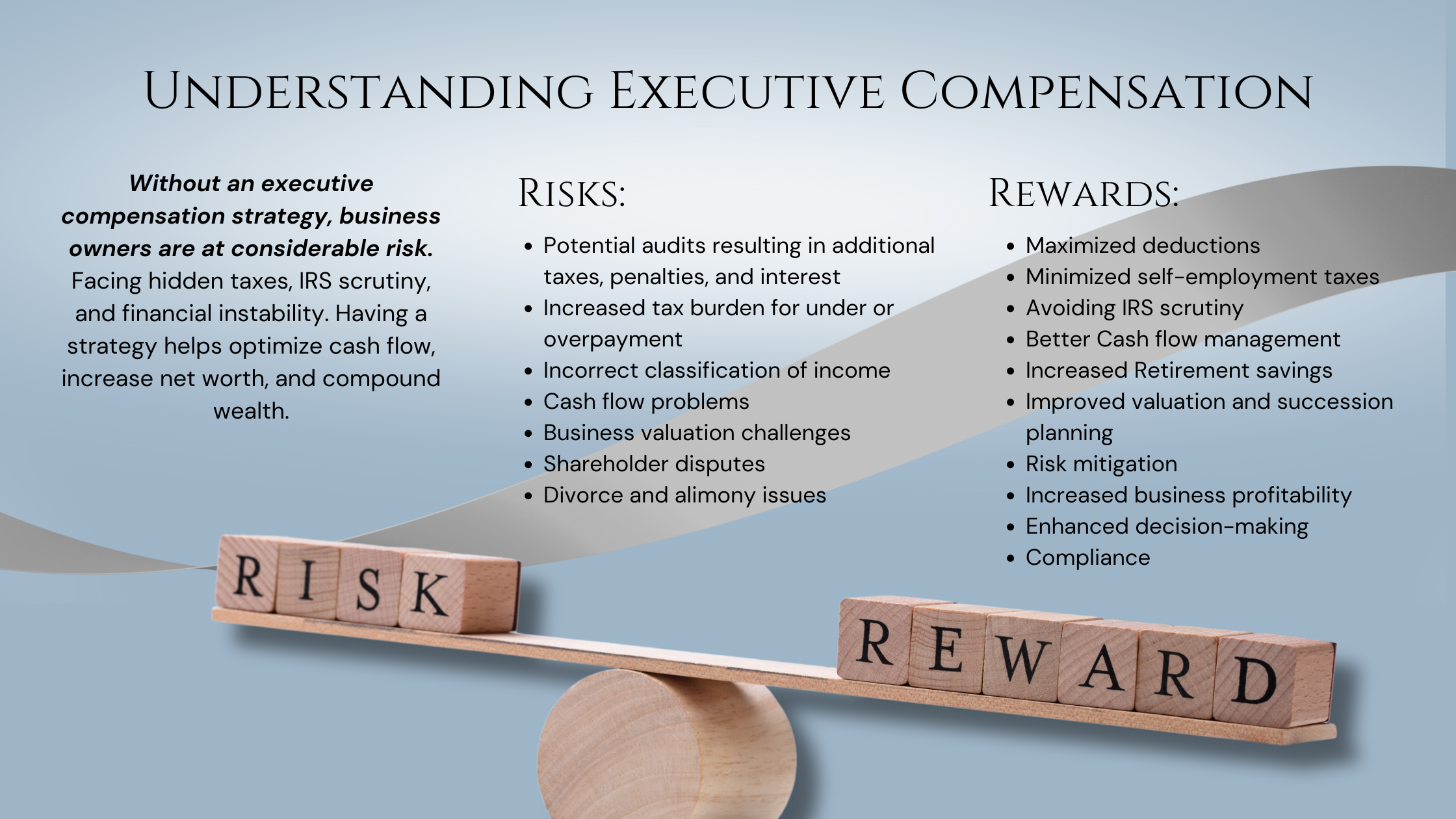Understanding Executive Compensation Studies
An executive compensation study is a comprehensive analysis of the compensation packages provided to top-level executives within a company. It involves examining various components of executive pay, such as base salary, bonuses, stock options, and other perks. The purpose of this study is to ensure that executive compensation is fair, competitive, and aligned with the company's goals and objectives.
By understanding the intricacies of executive compensation studies, businesses can make informed decisions regarding executive pay and design compensation packages that attract and retain top talent.
Importance of Executive Compensation Studies for Tax Planning
Executive compensation studies play a crucial role in tax planning for businesses. When conducted properly, these studies can help companies identify tax-saving opportunities and maximize deductions related to executive compensation.
By analyzing the different components of executive pay, businesses can determine which elements are tax-deductible and structure compensation packages accordingly. This can result in significant tax savings for the company.
Furthermore, executive compensation studies provide documentation and evidence to support the reasonableness of executive pay, which is important for tax compliance and avoiding scrutiny from tax authorities.
Key Components of an Effective Executive Compensation Study
To conduct an effective executive compensation study, several key components need to be considered. These include:
- Gathering relevant data: This involves collecting information on executive pay, industry benchmarks, market trends, and the company's financial performance.
- Analyzing compensation components: The study should assess the various elements of executive pay, such as base salary, bonuses, stock options, retirement benefits, and perquisites.
- Benchmarking against peers: Comparing executive compensation to industry peers helps determine whether the company's pay packages are competitive.
- Considering company goals and performance: The study should take into account the company's objectives, financial performance, and shareholder interests to ensure that executive compensation aligns with these factors.
- Compliance with legal and regulatory requirements: Executive compensation studies should adhere to applicable laws, regulations, and corporate governance guidelines.
Maximizing Tax Benefits through Proper Documentation
Proper documentation is essential for maximizing tax benefits through executive compensation studies. The Internal Revenue Service (IRS) requires businesses to maintain detailed records and substantiate the reasonableness of executive pay.
To maximize tax benefits, businesses should:
- Keep thorough records: Maintaining detailed records of executive compensation decisions, financial justifications, and supporting data is crucial for tax compliance and defending against potential challenges.
- Document business purposes: Clearly articulating the business reasons behind executive compensation decisions can help justify tax deductions and minimize the risk of disputes with tax authorities.
- Engage professional assistance: Working with experienced professionals, such as tax advisors and compensation consultants, can ensure that the executive compensation study is conducted in compliance with tax laws and regulations, maximizing tax benefits.
By following these documentation practices, businesses can maximize tax benefits and mitigate potential tax risks associated with executive compensation.
Tips for Engaging Professionals to Conduct Executive Compensation Studies
Engaging professionals to conduct executive compensation studies can provide businesses with valuable expertise and ensure compliance with tax laws. When selecting professionals for this task, consider the following tips:
- Look for experience and credentials: Choose professionals with significant experience in executive compensation studies and relevant certifications, such as Certified Compensation Professionals (CCP) or Certified Public Accountants (CPA).
- Assess industry knowledge: Ensure that the professionals have a deep understanding of your industry, its dynamics, and the specific challenges associated with executive compensation.
- Consider their track record: Review the professionals' past work, client testimonials, and success stories to gauge their ability to deliver effective executive compensation studies.
- Evaluate communication skills: Effective communication is essential for collaboration and understanding your company's unique needs. Choose professionals who can clearly articulate complex concepts and tailor their approach to your business.
- Discuss fees and deliverables: Have a transparent discussion about fees, timelines, and expected deliverables to ensure a mutually beneficial engagement.
By following these tips, businesses can find the right professionals to conduct executive compensation studies and maximize the tax benefits associated with these studies.
Our team helps business owners develop tax efficient compensation policies that allow them keep more of what they earn. Set up a time to talk with our team today.




